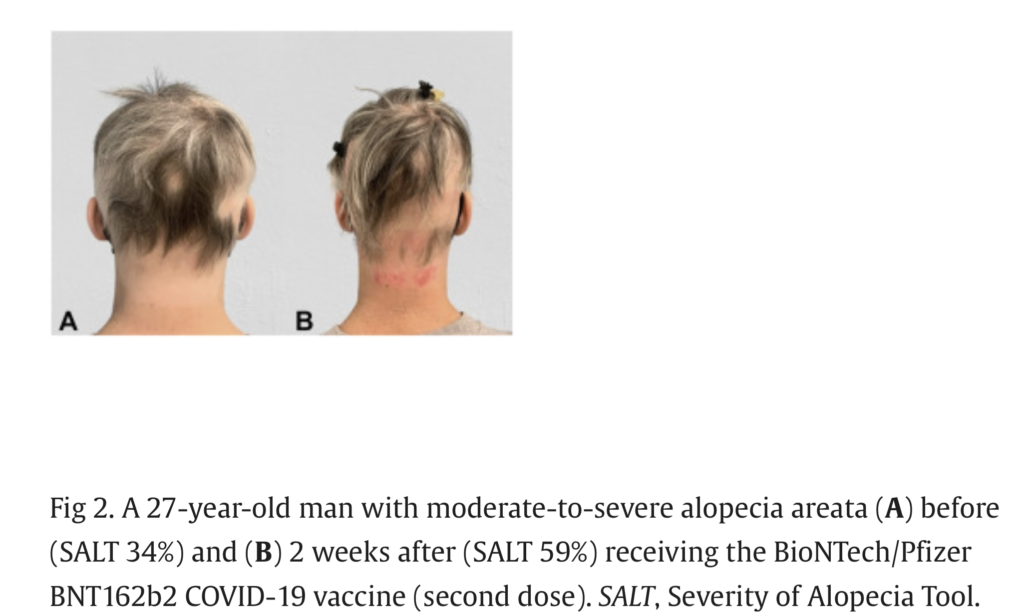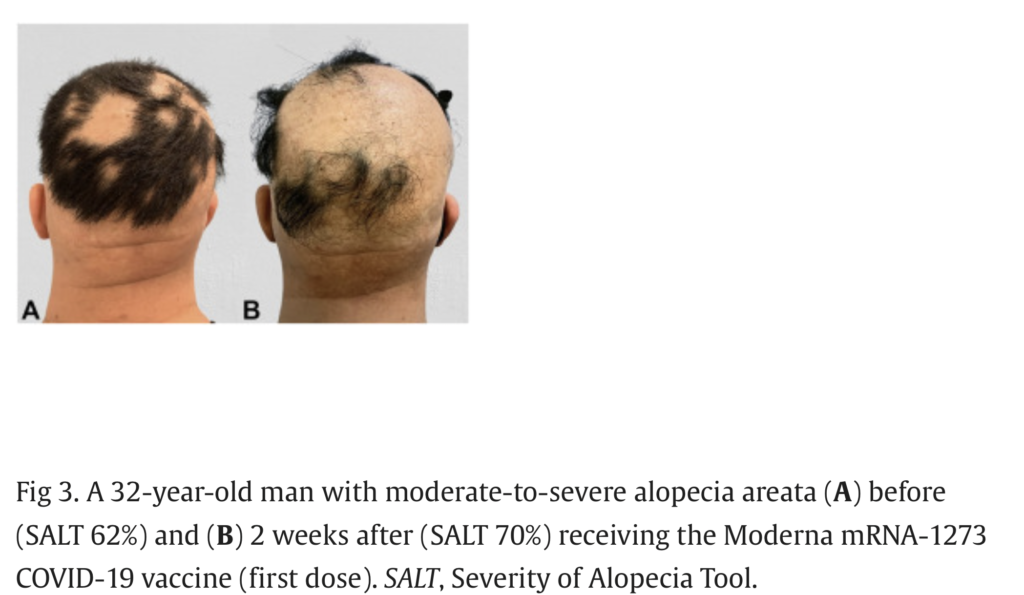Over and over, have you been flooded with news reports about the latest virus outbreaks? In a world where information spreads quickly through many media channels, it’s really important to figure out what’s real and what’s fake, especially regarding outbreaks.

Insights from Qvive:
Wow, the Takla Virus! What a creative name for a virus that’s suddenly on everyone’s lips. It’s hilarious how these so-called experts and scientists are busy with their naming game while brushing aside the real side effects of the vaccines. The COVID-19 vaccine has been known to cause various adverse reactions, and this critical information should not be dismissed, Still, various news media are busy amplifying the story of this so-called Takla Virus.
Is COVID-19 vaccine a reason for hair loss?
There have been reports of cases of alopecia areata (AA) occurring after the COVID-19 vaccination. Alopecia areata is a type of patchy autoimmune hair loss that can result in hair loss on the scalp, face, and other parts of the body.
Alopecia areata is an autoimmune condition in which the immune system mistakenly attacks hair follicles, leading to hair loss. This condition can manifest as small, round patches of hair loss on the scalp or other parts of the body. In some cases, alopecia areata can progress to total hair loss (alopecia totalis) or loss of all body hair (alopecia universalis).


Across multiple platforms, people have voiced their anxieties about hair loss post-COVID, but it seems that the main cause has been largely ignored by many doctors.




mRNA Vaccine: Alopecia areata

Another term for the sudden hair loss linked to vaccinations is Telogen Effluvium
What is Telogen Effluvium?
Experiencing a sudden loss of hair can be incredibly distressing, particularly for women, who typically face a lower risk of baldness compared to men. In medical terms, this condition is referred to as telogen effluvium (T.E.).
Hair growth has three stages:
- Anagen: During the anagen stage, new hair cells are generated, which is what allows your hair to grow longer. At any point, a significant portion of our hair is actively in this growth phase.
- Catagen: In the catagen phase, also known as the transitional stage, your hair follicles experience regression, leading to a temporary stop in hair growth.
- Telogen: In the telogen stage, the hair follicle enters a period of rest, completely ceasing its activity as it anticipates the shedding of the hair, which will trigger the beginning of a new growth cycle.
The term telogen effluvium indicates a heightened telogen stage, where hair is more likely to shed than to grow. This phenomenon results in a quick and unexpected loss of hair, making it a concerning issue for many.
How Is Telogen Effluvium Different from Alopecia?
One of the positive points about telogen effluvium is its greater leniency in comparison to alopecia, another serious hair loss issue. Most individuals experiencing this condition find that it is reversible, with a duration of about 3 to 6 months.
The impact of alopecia is more extensive than that of telogen effluvium, as it can influence your entire body, from your head down to your toes. In comparison, telogen effluvium is more restricted, primarily affecting the scalp and occasionally extending to the eyebrows and eyelashes.
Can COVID-19 Cause Hair Loss?
Having learned about telogen effluvium, we can refer to the NIH’s reports regarding hair loss that happens after getting the COVID-19 vaccine.

So, what’s your take on the Takla Virus hype? Are you focusing on the real side effects of the COVID-19 vaccine, or are you getting caught up in the naming game?
We should strive to remain educated, question the prevailing narratives, and focus on our health and well-being. In the field of public health, having knowledge is vital.
Source: NIH
Also Read:
